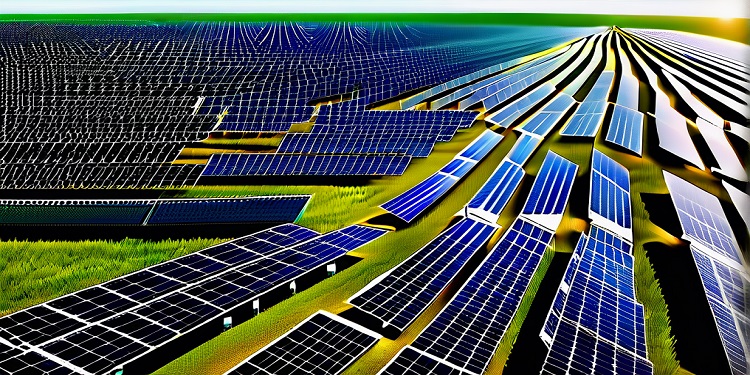As dependence on fossil fuels declines and environmental concerns grow, there is a global movement toward sustainable energy. Despite significant advances in renewable energy technologies such as solar and wind power, the sector faces persistent challenges that impede uptake. Complex regulatory frameworks, high transaction costs and lack of transparency remain major obstacles. Within this scenario, blockchain technology has emerged as a potential transformer in the energy sector, offering solutions that can transform the way energy is traded and consumed.
The New Energy Sources (NES) project aims to address these barriers by leveraging blockchain to create a decentralized energy trading platform, providing a secure and transparent environment for both renewable energy producers and consumers. is intended to address. NES operates beyond digital currencies and tokens to power the global renewable energy market by eliminating the inefficiencies of traditional systems and facilitating the production, distribution, and consumption of green energy. Designed to give.
Blockchain strengthens trust and transparency in energy markets
In traditional energy markets, transactions often involve multiple intermediaries, complicating procedures and inflating costs. Renewable energy transactions introduce additional complexity as buyers and sellers need to verify energy sources, quality, and compliance with environmental standards. NES addresses these issues through the implementation of blockchain technology.
The core feature of blockchain is an immutable distributed ledger that permanently records all energy transactions. This immutable record allows for real-time tracking of every step of energy production, transportation, and consumption, increasing transparency. Consumers can be sure that the energy they buy comes from reliable, renewable sources, while producers can ensure higher profits by bypassing intermediaries and accessing the market directly. can.
Streamline transactions with smart contracts
NES also integrates the use of smart contracts. It is a self-executing protocol on the blockchain that facilitates automatic transactions when predefined conditions are met. This technology greatly simplifies energy trading, reduces the need for third-party involvement, and minimizes errors caused by human intervention.
In the renewable energy sector, smart contracts can significantly improve transaction efficiency. For example, producers of solar or wind energy can use smart contracts to sell electricity directly to consumers. Once the consumer’s smart meter detects a certain level of electricity usage, the contract is automatically executed, guaranteeing instant payment and settlement. This feature makes smart contracts a powerful tool for accelerating transactions in large, fast-moving energy markets.
Decentralized energy trading: Empowering consumers
One of the most innovative contributions of NES is its decentralized approach to energy trading. In traditional markets, energy production is monopolized by large corporations, leaving consumers as passive users. However, through NES, individuals, households, and communities can become active participants in the energy market. By leveraging solar panels, wind turbines, and other renewable energy sources, surplus energy can be uploaded to the platform and traded.
This model diversifies energy markets, democratizes energy production and increases individual autonomy. The decentralized nature of the NES will foster widespread investment in renewable energy, encourage more consumers to adopt sustainable energy practices, and ultimately lead to a global shift towards a green economy. Accelerate your transition.
Optimize energy trading with AI integration
The NES ecosystem is not solely based on blockchain. It also incorporates artificial intelligence (AI) to increase the efficiency of energy trading. Through AI, NES can analyze energy market data in real-time, predict consumption trends, and dynamically adjust energy prices based on external factors such as weather conditions.
This intelligent market mechanism will help energy producers plan production and distribution more effectively, and consumers will be provided with data to choose the best energy supplier. Additionally, AI helps detect abnormal market activity, prevent fraudulent trades, and ensure a safe trading environment for all users.
Building a global network of renewable energy
NES is more than just a digital asset. It represents an entire ecosystem that fosters collaboration between energy producers, consumers, and policy makers to drive innovation in renewable energy. The platform provides energy developers with access to funding and resources to accelerate the commercialization of new technologies and projects.
NES works with companies, institutions, and key stakeholders, including Goldman Sachs Asset Management (GSAM), to advance green energy initiatives and become a leading player in the renewable energy space. We are aiming for By increasing market transparency, reducing transaction costs and fostering innovation, the NES is poised to play a central role in the global transition to renewable energy.
Promoting the world’s green economy
As NES continues to expand, it is expected to drive the growth of the global renewable energy market. The platform’s decentralized model makes energy trading more accessible and efficient, breaking down geographic and institutional barriers. By enabling more participants to participate in the production and consumption of renewable energy, NES plans to accelerate the transition to a sustainable and inclusive green economy.
NES’ collaborative efforts with industry leaders reflect the platform’s commitment to increasing transparency, fostering innovation, and contributing to the global renewable energy revolution.


